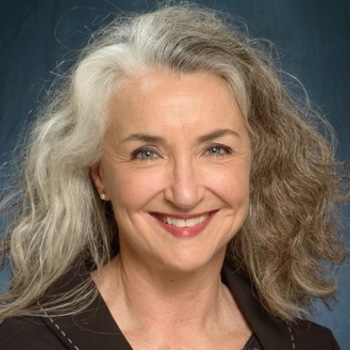
Victoria Goldfarb
Introduction
Being a psychotherapist is my second career. I became a member of the California Bar in 1987 and began my legal career as a litigator, but quickly learned I’m a peace-maker, not a fighter. I was naturally led towards mediation, which combined my bachelor’s degree in psychology, from the University of Chicago with my law degree from UCLA. In the fall of 2009, I returned to Cal State Dominguez Hills, committed to a path of life-long learning, to earn my Master’s Degree in Marriage and Family Therapy. I thought that the education and clinical training I would receive would make me a better divorce mediator, which it did. However, as I completed my 3,000 hours of clinical training at Airport Marina Counseling Service (AMCS), a community mental health clinic in Westchester, CA, I learned that I loved being a psychotherapist! While at AMCS I was privileged to work with individuals (both adults and children), couples, families and groups. I also taught parenting classes, using the Systematic Training for Effective Parenting curriculum. How I Work With Individuals Research has shown that the most important factor in predicting success in psychotherapy is the quality of the relationship between the therapist and the client. When I enter the room with my client, it is with a healing intent. By being genuine, observing closely, listening attentively, and reflecting the feelings underneath the words, I create a safe environment for my client to express their deepest feelings and thoughts. My client and I work together to “make sense” of how their relational histories and life experiences have organized their sense of themselves and their view of the world. This “making sense together” may result in my client being able to better “hold their own” in all their relationships, tolerate and manage their unpleasant feelings, and become more resilient, less easily injured, and calmer in the face of adversity. How I Work With Couples My role as a couple’s therapist is to create a safe environment where I can help my clients acquire the tools they need to clarify what they need and want from each other, including whether to stay together or to separate. I was trained in Imago therapy, the goal of which is to move from an “unconscious” relationship, characterized by “power struggles” to a “conscious” relationship. The tools of Imago Therapy allow couples to have greater empathy and compassion for each other, and to communicate with each other in a way that is respectful and, if the decision is made to stay together, intimacy promoting. I have also completed Level 3 Training in Gottman Method Couples Therapy and use its method in my work. If a couple has decided that they want to separate, I help them to do so in the healthiest way possible. How I Work With Families I work with families using concepts and techniques from Multi-Generational and Structural Family Therapy. During initial sessions, I ask each family member to describe their view of the issues that have brought them into Family Therapy. In subsequent sessions we might look at relational patterns in previous generations to identify how they might be influencing current relationships. I teach family members communication skills to help them communicate effectively during the sessions, and hopefully at home. Throughout therapy I observe the relational patterns among the family members, share my observations and suggest modifications to behaviors that are creating problems. Finally, I may work with different subsystems of the family, e.g., parents or siblings, to reinforce changes in dynamics that may be necessary to promote healthier functioning in the entire family.
Connect
Highlights
- Telehealth appointments
- Accepts online payments and insurance
Licenses
-
LMFT #83632 (CA)
Specialties
Additional focus areas
Treatment Approaches
Population focus
Appointment types
- Individuals
- Couples
- Families
Age groups
-
Young Adults (18-24)
-
Adults (24+)
-
Elders (65+)
Languages
-
English
Faiths
-
Agnostic
-
Atheist
-
Christian
-
Jehovah's Witnesses
-
Jewish
-
Interfaith
Pay with insurance
-
Cigna
Pay out-of-pocket
-
Fee Description $130 - $200